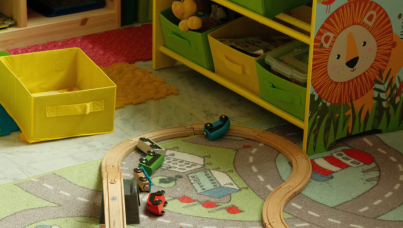Young people and working from home (WFH) in the pandemic
Research from Nationwide and Ipsos reveals that many young people wish to work from home for 3 days a week or more post-pandemic, but also need face-to-face time with colleagues to carry out their work. They are also more likely to state that working from home puts pressure on their health and wellbeing.
Younger workers need more time ‘in person’ with colleagues than any other generation. The research shows six in ten Gen Z (58%) and half (49%) of Millennials say they need to spend time with colleagues face-to-face in order to carry out their work effectively.
However, while some want to return to the office, the desire for blended office and home working is clear: 62 per cent of Gen Z and 56 per cent of Millennials want to work from home at least three days a week after the pandemic has passed.
Half (50%) of Gen Z and 43 per cent of Millennials who are currently working from home at least some of the time, say that doing so has put undue pressure on their health and wellbeing. More than half (54%) of Millennials also say their overall mental health has worsened during the pandemic, and just under half (49%) of Gen Z and 55 per cent of Millennials feel under pressure to perform at their best when working from home.
Dr Linda Papadopoulos said:
One of the most important developmental milestones for young adults is establishing a professional identity and as such, work opportunities and professional relationships play a huge role in this. COVID has taken away the opportunity to have that crucial in-person and ad-hoc contact that helps build a professional identity. By virtue of the fact that we are communicating only on-line communication has become more purposeful: and while this may be useful in some cases when it’s the only way we communicate we miss out on the social and professional benefits of informal catchups where one could float ideas, get advice or indeed build informal mentoring relationships.
On a positive note however, young people have a natural thirst for this and will be a driving force as we enter a new world of work – bringing energy to collaborative workspaces or traditional offices. It will be very different to what we’ve experienced so far, but it will give people the control to shape their work-life balance in ways never seen before. It’s great to see Nationwide championing a flexible working approach on where and when their staff work, by helping them to find a work pattern which balances their work and life.
Jane Hanson, Chief People Officer at Nationwide, said:
COVID-19 forced a sudden switch for all of us. Within a matter of hours everyone who could work from home was faced with navigating video calls and lack of contact across a full five-day week with the added intensity of no face-to-face in person social contact. As this has been far from the usual circumstances of working from home there have been challenges across all age groups, but younger workers in particular have faced either significant job losses or struggled to work away from senior colleagues.
While it is too soon to say what a true hybrid of remote and office-based working will look like, it’s clear that there is huge opportunity for a better work-life balance. Throughout the pandemic, the wellbeing and mental health of our people has been at the centre of everything we do, and the things we’ve learnt during the pandemic are ones we should not forget.
Billie Ing, Head of Trends at Ipsos, said:
This research has shone a light on the health and wellbeing challenges that younger generations have faced during the pandemic – perhaps exacerbated by difficult living conditions, such as cramped rented accommodation and a lack of dedicated workspace – which has meant that working from home has been tough. Despite this – many young people still have the desire to work from home once the pandemic has passed; a dichotomy that employers and employees will have to navigate together once the ‘new normal’ is here.
Technical note
Ipsos interviewed 2208 people aged 16-75 online between Friday 8th - Tuesday 12th January 2021, and data have been weighted to the known profile of the UK population. For more information please contact Billie Ing.



